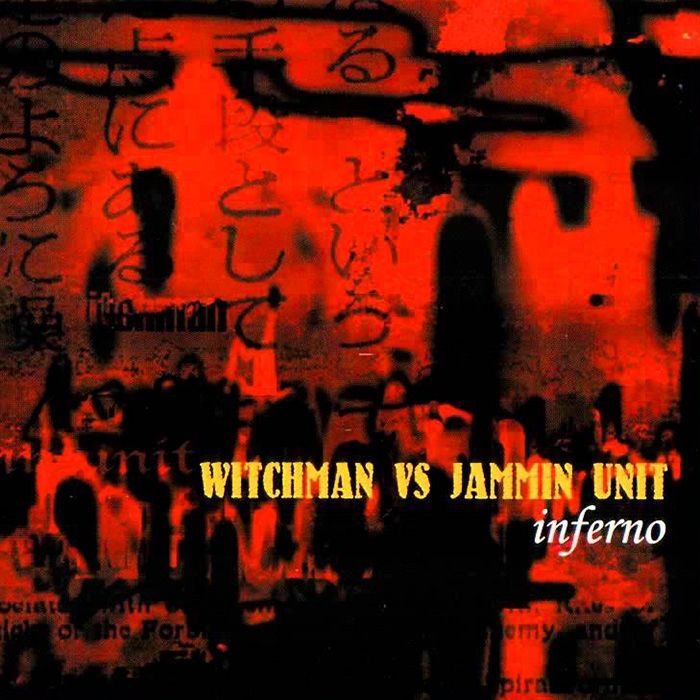Inferno by Witchman, Jammin Unit (Review)

I’ve never heard Jammin Unit before, but I’ve definitely listened the hades in and out of Witchman’s Heavy Mental and Explorimenting Beats. I first heard of him on the Bowery Electric remix album, Vertigo, on the blistering “Without Stopping” conversion.
Like many electronic artists, his take on other people’s work is sometimes a bit more thrilling than his originals. Thrilling, however, is a subjective word in this context. To refer back to Bowery, the thrills Witchman gives when he’s on his own, are of the slow variety.
To wit, there’s not blistering breakbeats all over this (even tho’ this is technically a remix album) or most of his solo stuff. What you do find, is some great music to move to that’s not slow enough to be downtempo, a bit too complex to be really “dub,” yet not texturally complex enough to saddle it with the “post-rock” tag, and not dumb enough to be just “dance.”
If you’ve heard Scorn or many of the more urban Bill Laswell projects, you’ve got the basic idea here. Unlike those projects though, which look pretty futuristic in comparison, John Roome (Witchman) seems to be more interested in older electronic sounds of late, preferring synth and sequencer sounds that nobody would have been caught dead using 10 years ago.
The time off given to these machines and beats seems to let one hear them in a new context though, and cheesiness has given way to something much better than irony or nostalgia. Somehow, the energy and potential of early electro comes through with their use. Like all good beat-driven albums, there’s moments where you hear one loop that breaks up the pattern, and you can’t wait another 8 bars to hear it again.
This is purportedly a reworking of the Jammin Unit album Deaf, Blind, and Dub. I suppose the dub in question here is of the electronic modern vibe, and not say, of warm, echoey old school Jamaican. Basslines are all keyboard here, no live drums, and there’s no great melodica or skittering guitar either. I guess I had my hopes up for something of the latter, but what I hear is only disappointing in that sense. In every other, Inferno stands on its own merits, which of course, is what its all about.
Written by Pearson Greer.